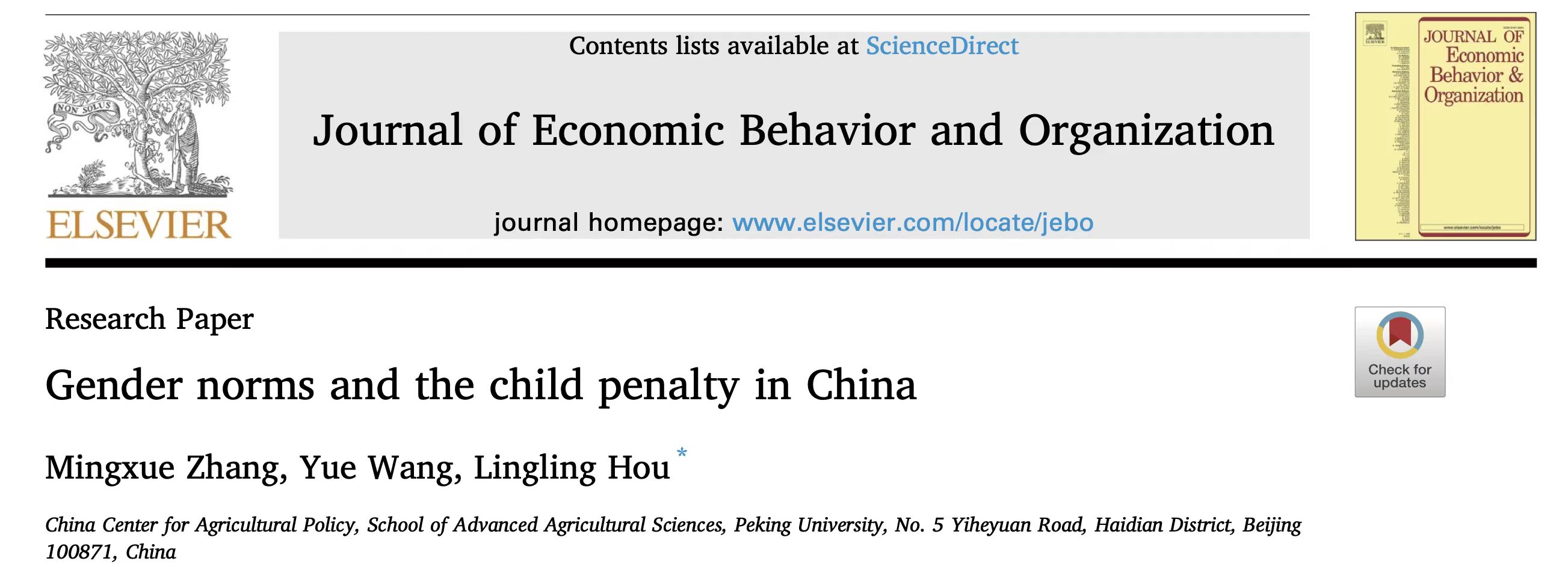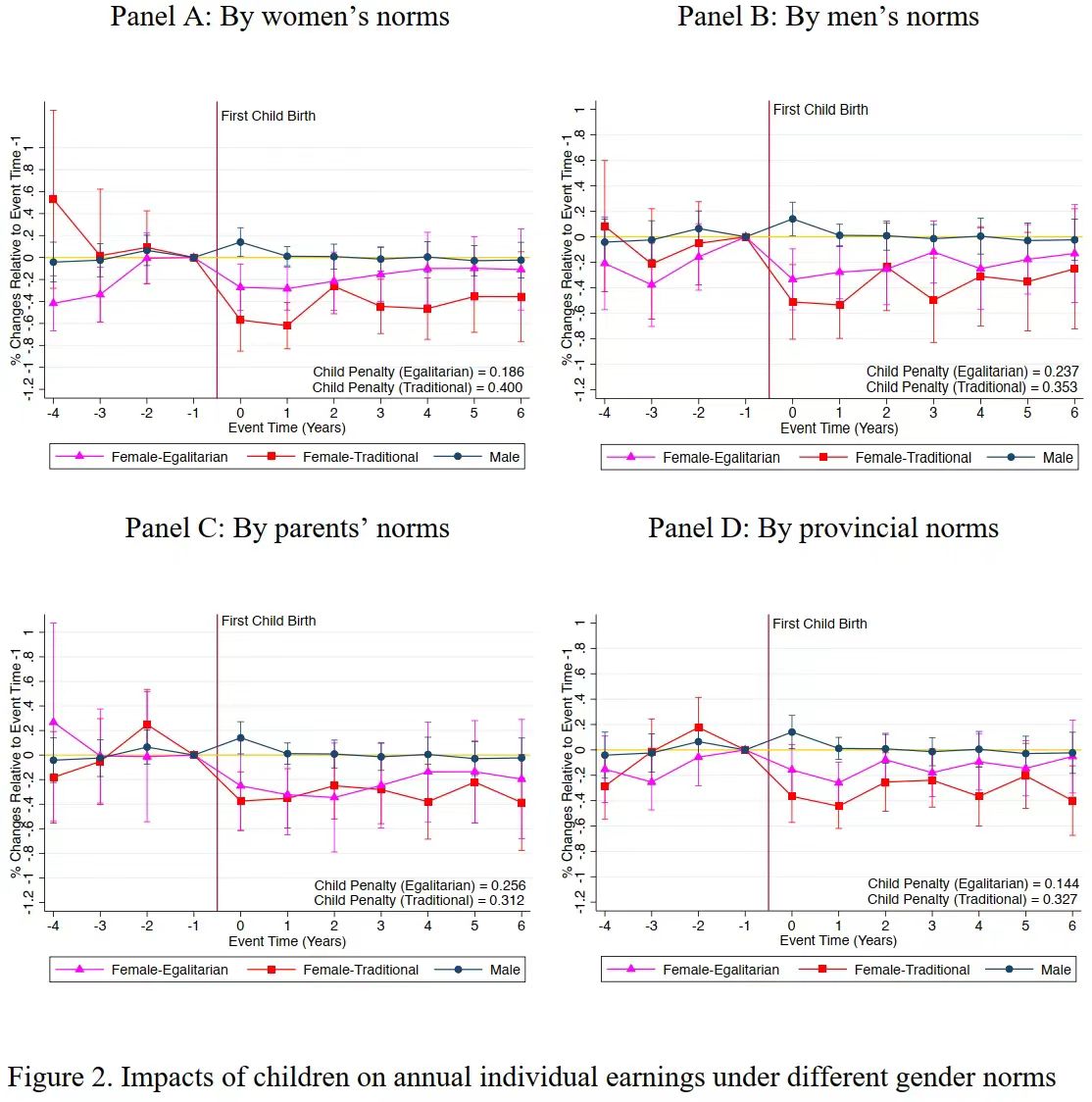current location: Home> Central News
Central News
Team of researchers Lingling Hou and Yue Wang collaborated to publish an article in JEBO, an international journal of behavioral economics.
Release date:2024/04/09 Source: CCAP
On March 28, 2024, researcher Lingling Hou, researcher Yue Wang, and doctoral student Mingxue Zhang of the School of Modern Agriculture at Peking University collaborated to publish a research paper in the Journal of Economic Behavior & Organization entitled "Gender norms and the child penalty in China" in the Journal of Economic Behavior & Organization.

Gender bias is a global historical problem that is detrimental to equal human development. It is widely recognized in the literature that the "fertility penalty" (i.e., the impact of childbearing on women's earnings) is one of the main causes of gender inequality in the labor market, but there is still a lack of empirical evidence in developing countries, especially since the mechanism by which the fertility penalty leads to gender bias is not clear.
Using data from the China Family Tracking Survey (CFPS), this paper examines the impact of childbearing on the labor market performance of women and men in contemporary China; more importantly, it explores the mechanism by which childbearing penalties influence childbearing from the perspective of gender norms (i.e., attitudes toward men and women in the social division of labor).
The study shows that before the birth of the first child, women's labor market performance is very similar to that of men, but after childbearing, women's labor market performance declines significantly, while men are not affected by childbearing. Specifically, in the first seven years after childbearing, women's personal income declines by an average of 21.4 percent, employment rate by 14.1 percent, and working hours by 17.9 percent, while wage rates do not decline significantly. Compared to other countries, China's fertility penalty is more moderate.
The study also found that gender norms are one of the important factors contributing to the fertility penalty. When women or their husbands hold traditional views (i.e., men dominate men and women dominate women), women are penalized more for childbearing (about 35-40 percent); when women or their husbands hold gender-equal views, women face a smaller childbearing penalty (about 19-24 percent). Gender norms lead women to be more likely to work informally or to drop out of the labor market after giving birth, and to take on more household tasks, voluntarily or involuntarily, thus reducing their hours of paid work.

Full Text Link: https://doi.org/10.1016/j.jebo.2024.03.011
Reference:Mingxue Zhang, Yue Wang, Lingling Hou*, Gender norms and the child penalty in China, Journal of Economic Behavior & Organization, Volume 221, 2024, Pages 277-291.



 Home
Home



